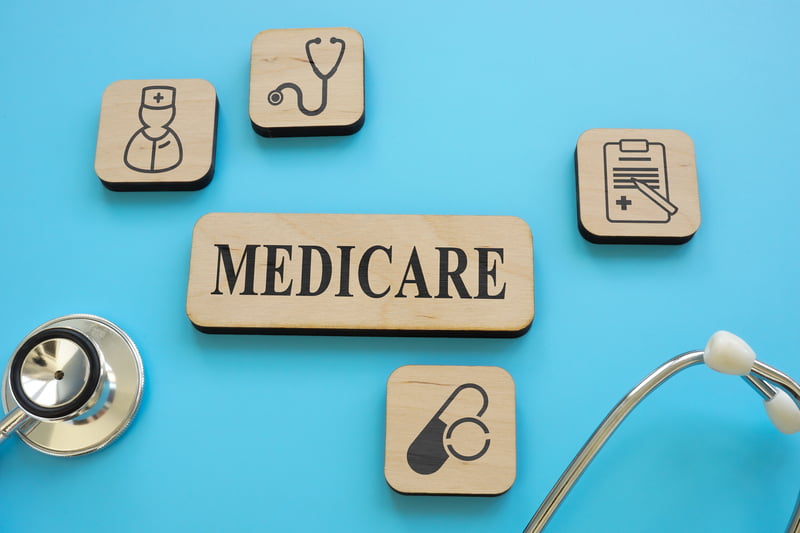While certainly, no one wants to face a situation where they need emergency care, it can and does happen all the time. Whether you’re in a car accident and you sustain injuries, you get suddenly very sick, or you have certain symptoms like chest pain, you may need to go to the emergency department.
Even with insurance, visiting emergency departments can bring high out-of-pocket costs, but what if you don’t have insurance?
The following are things to know about emergency treatment in general, especially if you don’t have insurance.
How Much Is the Average ER Visit?
An emergency room visit is usually covered by insurance, so your visit might cost a copay of anywhere from $50 to $150; however, there are a lot of factors that then ultimately determine how much you’re going to pay.
If you haven’t met your deductible, for example, you might be responsible for more out of pocket. The services you receive and your insurance plan and coverage also play a role.
ER visits by people under the age of 65 with private commercial insurance have an average cost of $1,640.
The average out-of-pocket costs are around $439.
People who are uninsured and used emergency departments in 2019 had average costs of nearly $1,750. People between the ages of 45 and 64 had an average expense of $2,285, while the average costs for people between the ages of 18 and 44 were $1,830.
The likelihood of going to an emergency room is higher than you might think. According to the CDC, nearly 20% of kids and more than 21% of adults 18 and up had at least one visit to the ER in 2018.
The age-related rates for ER visits were highest in people 65 and older.
Then, ER use for people between the ages of 18 and 24 was the next highest.
If an ambulance ride is needed, it can cost between $400 and $1,200, and sometimes more.
Where you live is relevant to your costs too. Florida is the most expensive state for a visit to the ER. Moderate-severity patients visiting the ER are billed an average of $3,102 before insurance. In New Jersey, before insurance, the average ER bill is $3,087, and it’s $2,960 in California.
Can You Go to the ER If You Don’t Have Insurance?
Aside from wondering about the cost, people with insurance might even question whether they’ll receive care at the ER.
If you do go to the hospital in an emergency room without insurance, the doctors and medical providers are required to treat you under the Emergency Medical Treatment and Labor Act or EMTALA. Under EMTALA, any person with an emergency medical condition, no matter their insurance coverage, won’t be denied lifesaving services that are essential.
EMTALA covers any hospital with an emergency department and any facility accepting Medicare payments from the federal government. Most hospitals meet both requirements, so EMTALA covers nearly every hospital in the country.
The EMTALA law doesn’t apply to doctor’s offices or medical facilities, or groups with no emergency room.
Even if you don’t actually go into the ER, but you’re in an area within 250 yards of the hospital’s main building, and you request emergency treatment, EMTALA-covered hospitals have to provide it.
If there’s a patient on hospital property who doesn’t request emergency treatment specifically, the hospital is required to provide it if a layperson would think, based on their behavior or appearance, they need it.
An emergency medical condition is one that comes up quickly, also known as an acute condition. The patient’s symptoms are severe to the point that not receiving prompt medical attention could put their health in jeopardy, cause serious impairment, or cause dysfunction of an organ.
The law also includes pregnant women having contractions as an emergency medical condition, if there isn’t enough time to safely transfer the woman or if transferring or could put her or the unborn child at risk.
Even something like a broken bone might qualify if not fixing it would cause dysfunction.
If a hospital determines a patient doesn’t have a condition that’s an emergency, they’re under no more obligation to treat them if they don’t have insurance. If the patient does have a condition the hospital determines is an emergency, they have to provide either the necessary stabilizing treatment or transfer the patient to another hospital. They might do both.
Necessary stabilizing treatment is whatever is required to make sure the patient’s condition doesn’t deteriorate during transfer to another hospital.
Hospitals can’t transfer non-stabilized emergency patients to just any place. The hospital has to first attempt to stabilize them within the limits of their capabilities and can only transfer the patient when the other hospital agrees to take them.
How Is Payment Handled?
While an emergency department may be required to treat you, if you don’t have insurance, you are responsible for the whole bill. When you’re visiting a doctor or a non-emergency provider, you can ask about the cost of treatment beforehand, but you don’t have that luxury in an emergency.
If you receive emergency treatment and you’re not insured, hospitals may give discounts or let you pay negotiated amounts toward your bill over a period of time.
You can speak to the billing department of the hospital and ask about financial assistance programs, which they’ll sometimes label as charity care. Financial assistance programs adjust your bills based on your ability to pay. Non-profit hospitals are legally required to offer financial assistance and payment plans to patients who are low-income.
Whenever possible, if you don’t have insurance, avoid the emergency room. Before you get care in an ER, make sure you have a true emergency, and it’s not something that could be taken care of at an urgent care center.
Urgent care visits cost half as much, if not even less, compared to a trip to the ER, and some of the services may be the same.
If you are having an emergency, don’t let a lack of insurance coverage keep you from seeking prompt care.







